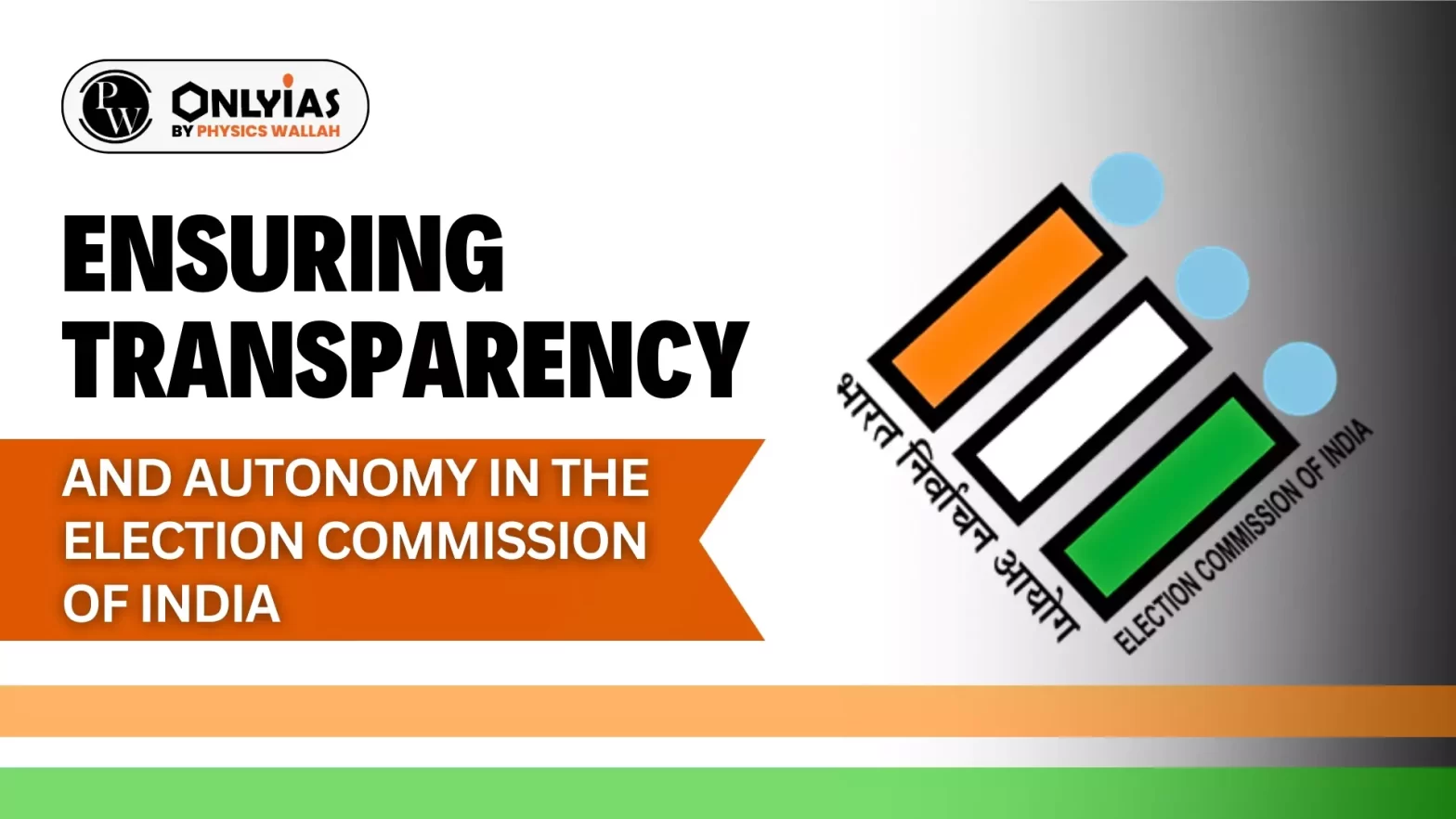![]() 12 Mar 2024
12 Mar 2024

This editorial is based on the news “Former Election Commissioner Ashok Lavasa writes: With vacancies, Election Commission’s moment of reckoning” which was published in the Indian Express. In March last year, the Supreme Court ordered the constitution of a selection committee for the Election Commission of India (ECI) and now just over a year later, and three months after Parliament passed a law excluding the CJI from the committee, there are two vacancies in the ECI and the time to test the law.
| Relevancy for Prelims: Lok Sabha Election, Election Commission Of India, Election Commissioners, One Nation One Election, Intra Party Democracy In Indian Political Parties, Bill on Appointing Chief Election Commissioner and Other Election Commissioners, and Limits On Election Campaign Spending.
Relevancy for Mains: Election Commission (EC)- Provisions, Safeguards and Issues and Challenges Faced by the EC. |
|---|
The Indian Constitution provides for many institutions that form the spine of our democracy. Although each institution has a different purpose and character, it is time the actions should be taken to protect and enhance the independence of the EC.
| Prelims PYQ (2017):
Consider the following statements: 1. The Election Commission of India is a fivemember body. 2. Union Ministry of Home Affairs decides the election schedule for the conduct of both general elections and bye-elections. 3. Election Commission resolves the disputes relating to splits/mergers of recognized political parties. Which of the statements given above is/are correct? (a) 1 and 2 only (b) 2 only (c) 2 and 3 only (d) 3 only Ans: (d) |
|---|
| Must Read | |
| NCERT Notes For UPSC | UPSC Daily Current Affairs |
| UPSC Blogs | UPSC Daily Editorials |
| Daily Current Affairs Quiz | Daily Main Answer Writing |
| UPSC Mains Previous Year Papers | UPSC Test Series 2024 |
<div class="new-fform">
</div>